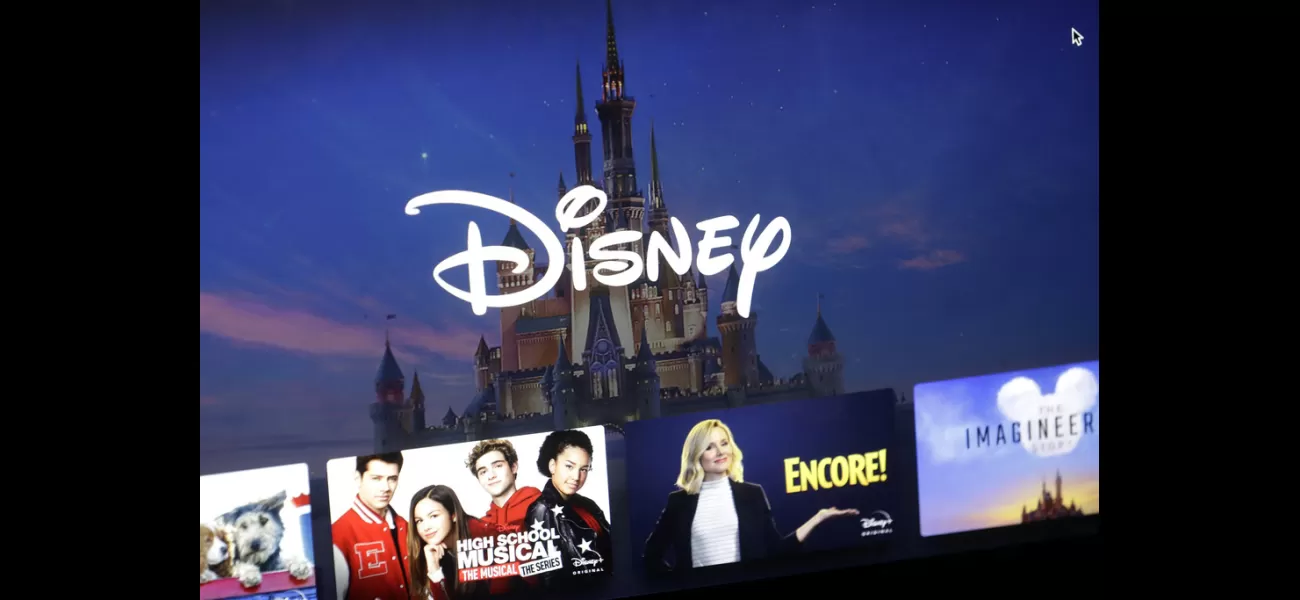Lawsuit against Disney for wrongful death serves as caution to consumers who click 'I agree'.
Disney wants the lawsuit dismissed as the woman's husband had a Disney+ trial subscription.
August 16th 2024.

The recent wrongful death lawsuit against Walt Disney Parks and Resorts serves as a stark reminder for consumers to carefully read the fine print before signing up for any streaming service or smartphone app. The lawsuit was filed by the family of a New York woman who tragically passed away after dining at a restaurant in Disney Springs, an outdoor complex owned by Disney in Florida. In response, Disney is attempting to have the case dismissed by pointing to a subscriber agreement that was signed by the woman's husband, who had previously enrolled in a trial subscription for Disney+.
According to the agreement, any legal disputes between the customer and Disney must be resolved through arbitration, effectively waiving the right to take the matter to court. This type of agreement, often buried in the terms and conditions of downloads and subscriptions, is becoming increasingly common and poses a challenge for consumers seeking legal advice. John Davisson, the director of litigation at the Electronic Privacy Information Center, explains that these agreements are heavily biased in favor of the company and leave little room for negotiation.
In this specific case, the lawsuit was filed by the family of Kanokporn Tangsuan, a 42-year-old doctor who suffered a fatal allergic reaction after dining at an Irish pub in Disney Springs. The family claims that they chose this particular restaurant because Disney's website advertised it as having allergen-free options. However, despite repeatedly informing their waiter of Tangsuan's severe allergies, she tragically passed away after collapsing while out shopping. The medical examiner determined that her death was the result of anaphylaxis due to elevated levels of dairy and nut in her system.
Disney has expressed their condolences to the family but has also emphasized that the Irish pub, which is also being sued, is not owned or operated by the company. From a consumer protection standpoint, Disney is standing by their argument that the subscriber agreement, signed by Tangsuan's husband, is legally binding and prevents the family from taking the matter to court. This agreement, in all capital letters, states that any disputes must be resolved through arbitration, a process that involves a neutral third party making a binding decision.
The family's lawyer has argued that it is unreasonable to believe that the millions of Disney+ subscribers have waived their right to sue the company and its affiliates forever, especially when their case has nothing to do with the streaming service. This raises the question of what consumers can do to protect themselves from these types of agreements. While it may seem like an impossible task to fully understand and interpret the dense legal language of these agreements, Davisson suggests supporting lawmakers and regulators who are taking notice of these issues.
Historically, the Federal Trade Commission has supported the use of disclosure terms to protect companies, even though they may be difficult for the average consumer to comprehend. However, there has been a shift among policymakers and regulators to address the overwhelming number of contracts that consumers are expected to agree to on a daily basis. It is increasingly evident that in our digital age, where we are constantly interacting with various platforms and services, it is nearly impossible for consumers to fully understand and agree to all the terms and conditions presented to them.
According to the agreement, any legal disputes between the customer and Disney must be resolved through arbitration, effectively waiving the right to take the matter to court. This type of agreement, often buried in the terms and conditions of downloads and subscriptions, is becoming increasingly common and poses a challenge for consumers seeking legal advice. John Davisson, the director of litigation at the Electronic Privacy Information Center, explains that these agreements are heavily biased in favor of the company and leave little room for negotiation.
In this specific case, the lawsuit was filed by the family of Kanokporn Tangsuan, a 42-year-old doctor who suffered a fatal allergic reaction after dining at an Irish pub in Disney Springs. The family claims that they chose this particular restaurant because Disney's website advertised it as having allergen-free options. However, despite repeatedly informing their waiter of Tangsuan's severe allergies, she tragically passed away after collapsing while out shopping. The medical examiner determined that her death was the result of anaphylaxis due to elevated levels of dairy and nut in her system.
Disney has expressed their condolences to the family but has also emphasized that the Irish pub, which is also being sued, is not owned or operated by the company. From a consumer protection standpoint, Disney is standing by their argument that the subscriber agreement, signed by Tangsuan's husband, is legally binding and prevents the family from taking the matter to court. This agreement, in all capital letters, states that any disputes must be resolved through arbitration, a process that involves a neutral third party making a binding decision.
The family's lawyer has argued that it is unreasonable to believe that the millions of Disney+ subscribers have waived their right to sue the company and its affiliates forever, especially when their case has nothing to do with the streaming service. This raises the question of what consumers can do to protect themselves from these types of agreements. While it may seem like an impossible task to fully understand and interpret the dense legal language of these agreements, Davisson suggests supporting lawmakers and regulators who are taking notice of these issues.
Historically, the Federal Trade Commission has supported the use of disclosure terms to protect companies, even though they may be difficult for the average consumer to comprehend. However, there has been a shift among policymakers and regulators to address the overwhelming number of contracts that consumers are expected to agree to on a daily basis. It is increasingly evident that in our digital age, where we are constantly interacting with various platforms and services, it is nearly impossible for consumers to fully understand and agree to all the terms and conditions presented to them.
[This article has been trending online recently and has been generated with AI. Your feed is customized.]
[Generative AI is experimental.]
0
0
Submit Comment





